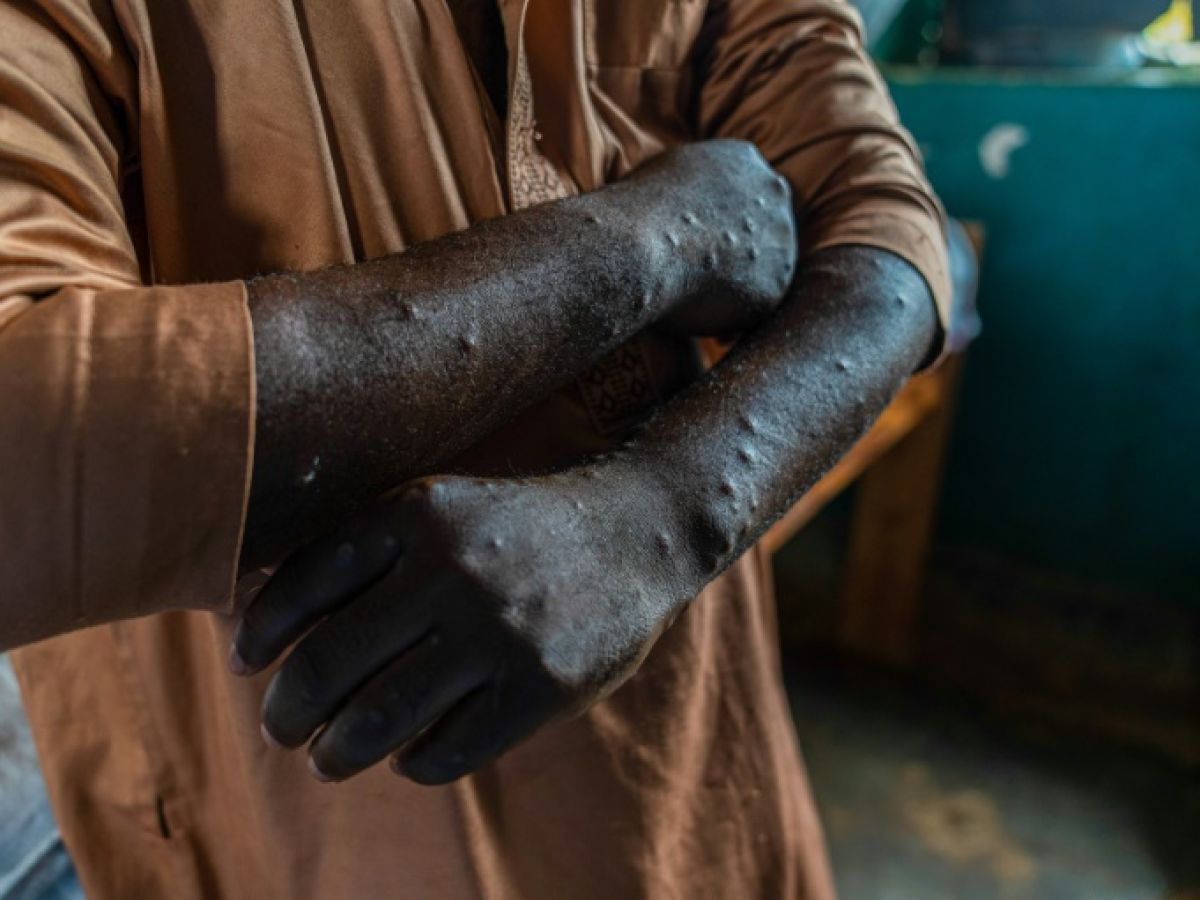Amidst the jars filled with larvae stagnating in the water, swarms of mosquitoes buzz under a white fabric cage: a kind of mosquito factory, some of which escape from their cage and bite the visitor.
Although identical to the insects that carry dengue fever, they are harmless and are part of an ambitious experiment being carried out in Colombia to combat the disease.
For nearly ten years, the World Mosquito Program (WMP) has been replacing the local population of Aedes aegypti mosquitoes - the famous striped tiger mosquito - with biologically modified individuals in order to prevent the transmission of dengue fever, which has already caused 4,500 deaths this year in Latin America.
"We use life to preserve life," biologist Nelson Grisales, who heads the laboratory in Medellin, the country's second largest city, told AFP.
The project, supported by American multi-billionaire Bill Gates, has achieved promising results: the incidence of dengue fever in the department of Antioquia (northwest) has been reduced by 95% compared to the previous decade, according to the health authorities of this region of 4.4 million inhabitants.
A victory despite the disinformation campaign on social media, according to which Bill Gates would use these mosquitoes for obscure purposes.
– Bacteria versus viruses –
Although they still bite, the lab-grown mosquitoes do not spread dengue fever, a disease endemic to tropical areas that causes fever, headaches, vomiting, muscle pain and, in severe cases, fatal bleeding.
Unlike their wild counterparts, they contain the bacteria Wolbachia, which "creates a barrier and prevents the transmission of dengue," explains Beatriz Giraldo, another WMP biologist.
The discovery was made by Australian scientist Scott O'Neill, a leading figure in the fight against the disease since the early 1990s.
In his research, he found this bacteria present in half of the mosquito species, but not in Aedes aegypti. O'Neill had the intuition that by infecting it with Wolbachia, the transmission of dengue would thus be stopped.
"They extracted Wolbachia from the fruit mosquito and injected it into millions of Aedes aegypti eggs until they were able to establish a colony that could reproduce with Wolbachia for many generations," Grisales says.
"It's not a genetic modification," Giraldo emphasizes. "The bacteria enters the mosquito cell and makes a biological modification, but not a genetic modification."
– A growing problem –
The modified mosquitoes, raised under mosquito nets, are then transported in jars to dengue-affected areas, where they are released. There, they breed with wild mosquitoes and gradually replace the local population.
The first WMP insects in Colombia were released in 2015 in the municipality of Bello, in the metropolitan area of Medellin.
The incidence of dengue fever fell from 144.7 annual cases per 100,000 inhabitants before the experiment to 6.4 annual cases per 100,000 inhabitants from 2021.
Before Medellin, the program was implemented in Jakarta, Indonesia, and Niteroy, Brazil, with equally convincing results. The initiative has also been introduced in the Colombian city of Cali, and will soon be in El Salvador.
“All this is accelerating at the same time as the dengue problem,” observes Mr. Grisales.
The Pan American Health Organization (PAHO) has warned that this year Latin America and the Caribbean will experience their "worst dengue season", with some 3.5 million cases.
The combination of the El Nino phenomenon and climate change is favoring the spread of the mosquito, which breeds in warm land and water.
The European Union's health agency has warned that dengue fever cases are also increasing in Europe due to rising temperatures.
Information -
The lab has been the target of conspiracy theories associated with Bill Gates' image.
In September, a handful of people demonstrated in Medellin, responding to a call on social media where dozens of messages accused the WMP of spreading "yellow fever," "malaria" and other alleged scourges.
They claim "for example that the mosquitoes we release are equipped with Bill Gates' mind control chips, that they can make people homosexual or that they transmit stronger diseases," lists Mr. Grisales.
For now, the project is operating as a private initiative authorized by local authorities, but Mr. Grisales hopes it will soon be considered a "public policy."
In Comuna 18 of Cali, where Wolbachia mosquitoes have been flying since 2019, "many people did not like the first impact of the mosquito releases," says Albency Orozco, a resident. "But after explanations and explanations, people accepted it," she adds.

